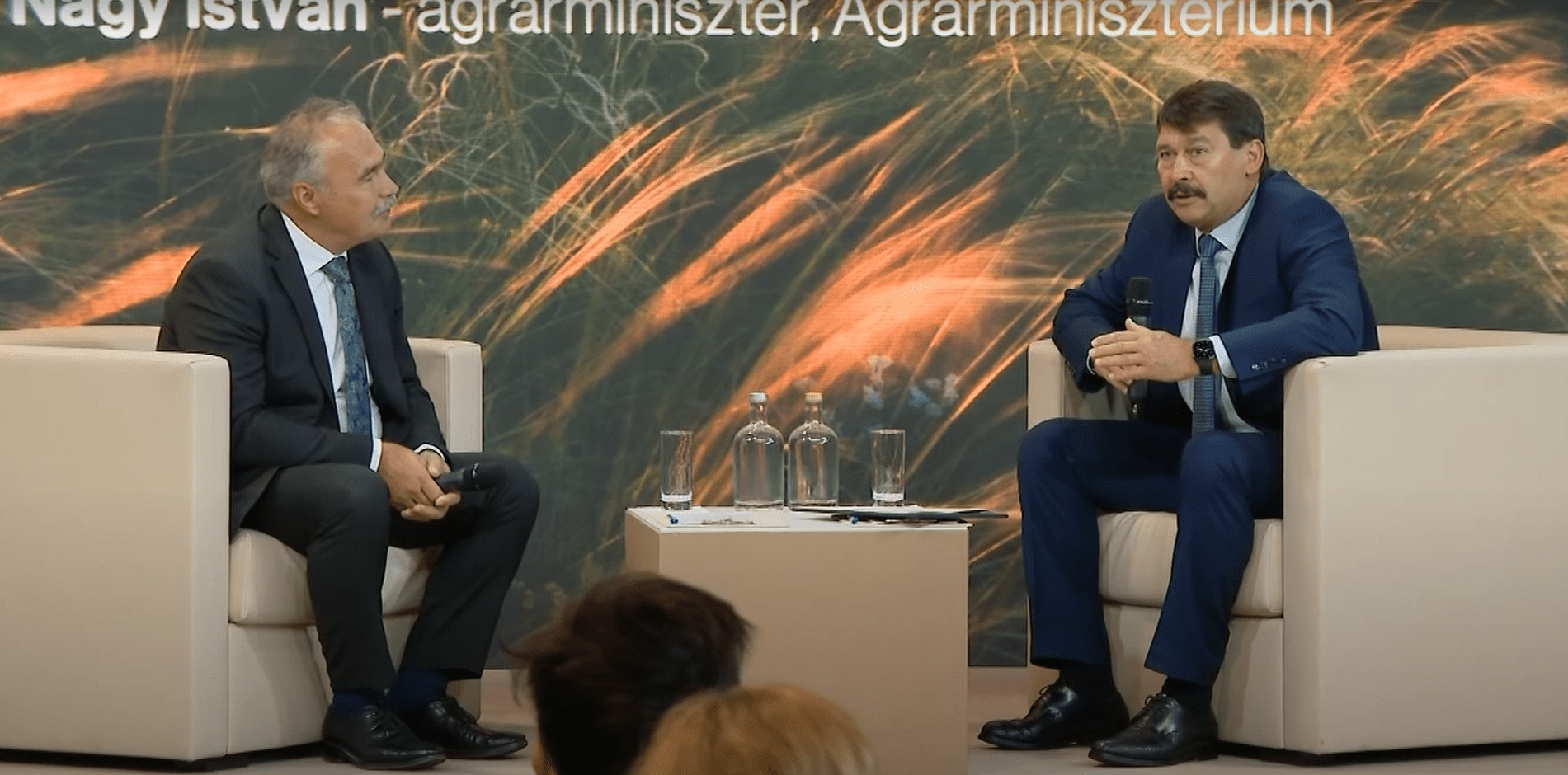In the latest episode of the Blue Planet podcast, former President János Áder engaged in a discussion about the preservation of arable land, water, and ecological diversity with Minister of Agriculture István Nagy. The recording, released this Tuesday, was captured at the Planet Budapest 2023 Sustainability Expo.
During the discourse, both the former head of state and the minister underscored the multifaceted ecosystem of arable lands, emphasizing that without the presence of fungi, bacteria, and other organisms, the land cannot yield an adequate quantity of high-quality food. Áder pointed out the threats of pollution to surface waters and over-extraction to groundwater. He highlighted global issues such as inadequate irrigation technology, escalating food wastage, the yearly decrease in forest cover equivalent to the size of Italy, and the degradation of soil.
Affirming these concerns, Nagy expressed that
the loss of arable land quality, compounded by urbanization and industrial development, necessitates the establishment of a comprehensive soil monitoring system.
He also stressed the importance of cultivating every type of soil in the most suitable manner, preparing farmers accordingly, and ensuring the return of organic matter to prevent its loss from fertile soil.
A talaj megóvása és a csapadék tárolása
Planet Extra – A termőföld, a víz, az ökológiai sokféleség és az erdő a jövő generációi számára az állam és mindenki által megőrzendő – mondja az agrárminiszter. Nagy István szerint a termőföld sokrétű ökoszisztéma, az abban található állatok, gombák, baktériumok kellenek ahhoz, hogy megfelelő mennyiségű és jó minőségű élelmiszert lehessen előállítani.
Despite Hungary’s capability to sustain the basic food needs of 20 million people, Nagy cautioned that the looming drastic climate change requires meticulous soil coverage in every cultivated area in the coming years. Áder further elaborated on the inefficient absorption of nitrogen in fertilizers, resulting in either greenhouse gas emissions or groundwater pollution. Additionally, improper soil cultivation worsens soil water management, exacerbated by decreasing precipitation.
Contrary to conventional concerns about water quality, Áder highlighted the critical issue of water retention and storage within Hungary. He attributed this challenge not only to natural drainage but also to the export of excess water from the country. Nagy emphasized the shift from the previous threat of flooding to the current predominant issue of drought, linked to deforestation in watershed areas.
Addressing the decline in river flow, he mentioned that the Danube and Tisza rivers experienced a 40 per cent and 60 per cent decrease in water discharge, respectively, last year. Furthermore,
Minister Nagy advocated for ecological water supplementation to combat drought and urged a reconsideration of internal water resources as assets.
Looking ahead, Nagy emphasized the importance of raising the groundwater level and expanding irrigable agricultural land from the current 90,000 hectares (347.5 square miles) to 500,000 hectares (1,930 square miles) in the coming years. He disclosed ongoing plans for the construction of new canals and reservoirs, with the substantial financial support of 75 billion forints allocated for irrigation projects.
In HIS concluding remarks, Nagy underscored the paramount importance of individual initiatives for sustainability, urging everyone to initiate change within themselves rather than imposing conditions on others. He emphasized the need to reassess consumption patterns and responsibly leverage technological advancements to foster sustainable production.
Related articles:
Source: Hungarian Conservative/Blue Planet/MTI








